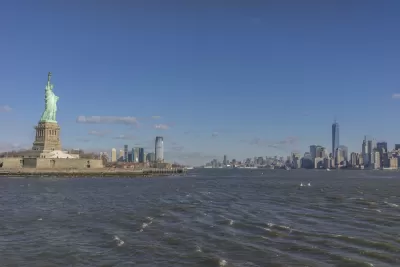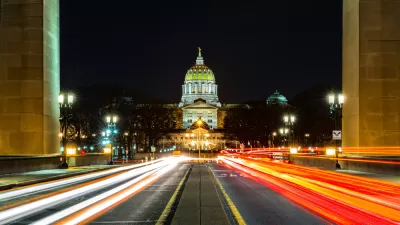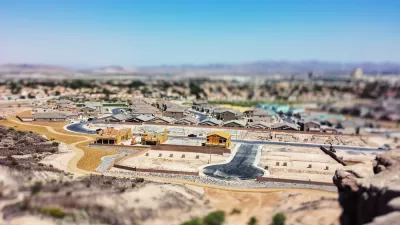A contentious debate broke out this week, after a pundit proposed breaking up the consolidation of economic and political power of the country's liberal cities.

New York Times pundit Ross Douthat went and did something controversial over the weekend and provided a dissenting take on the narrative of urban areas as the economic powerhouses and diversity successes of the United States.
So has the heyday of these meritocratic agglomerations actually made America greater? I think not. In the age of the liberal city — dating, one might argue, to the urban recovery of the 1990s — economic growth has been slack, political dysfunction worse, and technological progress slow outside the online sector.
After stating his premise, Douthat goes on to propose an idea he admits is "Implausible, perhaps even ridiculous":
We should treat liberal cities the way liberals treat corporate monopolies — not as growth-enhancing assets, but as trusts that concentrate wealth and power and conspire against the public good. And instead of trying to make them a little more egalitarian with looser zoning rules and more affordable housing, we should make like Teddy Roosevelt and try to break them up.
Douthat provides more detail on what that deconsolidation would like that, and sparked a lot of social media discussion in the process.
One response to Douthat's proposal is especially worth noting, that of City Observatory's Joe Cortright, who writes that Douthat's proposal "one of the most spectacularly wrong-headed policy prescriptions for economic development that has ever been offered."
According to Cortright's well-evidenced response, breaking up cities would not spread the wealth, but "actually destroy value and make the nation worse off."
FULL STORY: Break Up the Liberal City

Alabama: Trump Terminates Settlements for Black Communities Harmed By Raw Sewage
Trump deemed the landmark civil rights agreement “illegal DEI and environmental justice policy.”

Study: Maui’s Plan to Convert Vacation Rentals to Long-Term Housing Could Cause Nearly $1 Billion Economic Loss
The plan would reduce visitor accommodation by 25% resulting in 1,900 jobs lost.

Planetizen Federal Action Tracker
A weekly monitor of how Trump’s orders and actions are impacting planners and planning in America.

Grand Rapids Mayor Proposes Garage Conversion Plan
The mayor says allowing homeowners to convert garages to dwelling units could alleviate the city’s housing shortage.

Baltimore Ordered to Improve Sidewalk Accessibility
The city is one of many to face lawsuits for failing to comply with the Americans with Disabilities Act.

This Toronto Suburb Has More Bus Riders Than Columbus, Ohio
Brampton, Ontario used gradual improvements in service to prove that if you build it, they will ride.
Urban Design for Planners 1: Software Tools
This six-course series explores essential urban design concepts using open source software and equips planners with the tools they need to participate fully in the urban design process.
Planning for Universal Design
Learn the tools for implementing Universal Design in planning regulations.
Smith Gee Studio
Alamo Area Metropolitan Planning Organization
City of Santa Clarita
Institute for Housing and Urban Development Studies (IHS)
City of Grandview
Harvard GSD Executive Education
Toledo-Lucas County Plan Commissions
Salt Lake City
NYU Wagner Graduate School of Public Service





























